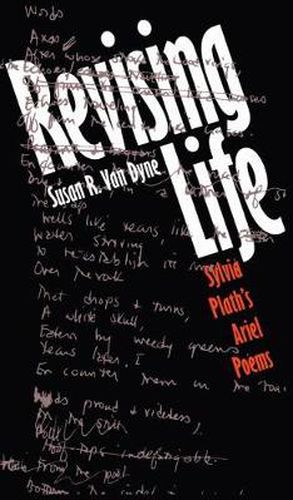Readings Newsletter
Become a Readings Member to make your shopping experience even easier.
Sign in or sign up for free!
You’re not far away from qualifying for FREE standard shipping within Australia
You’ve qualified for FREE standard shipping within Australia
The cart is loading…






‘Provides a compelling argument for Plath’s revision of the painful parts of her life–the failed marriage, her anxiety for success, and her ambivalence towards her mother… . The reader will feel the tension in the poetry and the life.’ Choice ‘[Examines] Plath’s twin goals of becoming a famous poet and a perfect mother… . This book’s main points are clearly and forcefully argued: that both poems and babies require 'struggle, pain, endless labor, and … fears of monstrous offspring’ and that, in the end, Plath ran out of the resources necessary to produce both. Often maligned as a self-indulgent confessional poet, Plath is here retrieved as a passionate theorist.‘– Library Journal Susan Van Dyne’s reading of twenty-five of Sylvia Plath’s Ariel poems considers three contexts: Plath’s journal entries from 1957 to 1959 (especially as they reveal her conflicts over what it meant to be a middle-class wife and mother and an aspiring writer in 1950s America); the interpretive strategies of feminist theory; and Plath’s multiple revisions of the poems.
$9.00 standard shipping within Australia
FREE standard shipping within Australia for orders over $100.00
Express & International shipping calculated at checkout
‘Provides a compelling argument for Plath’s revision of the painful parts of her life–the failed marriage, her anxiety for success, and her ambivalence towards her mother… . The reader will feel the tension in the poetry and the life.’ Choice ‘[Examines] Plath’s twin goals of becoming a famous poet and a perfect mother… . This book’s main points are clearly and forcefully argued: that both poems and babies require 'struggle, pain, endless labor, and … fears of monstrous offspring’ and that, in the end, Plath ran out of the resources necessary to produce both. Often maligned as a self-indulgent confessional poet, Plath is here retrieved as a passionate theorist.‘– Library Journal Susan Van Dyne’s reading of twenty-five of Sylvia Plath’s Ariel poems considers three contexts: Plath’s journal entries from 1957 to 1959 (especially as they reveal her conflicts over what it meant to be a middle-class wife and mother and an aspiring writer in 1950s America); the interpretive strategies of feminist theory; and Plath’s multiple revisions of the poems.